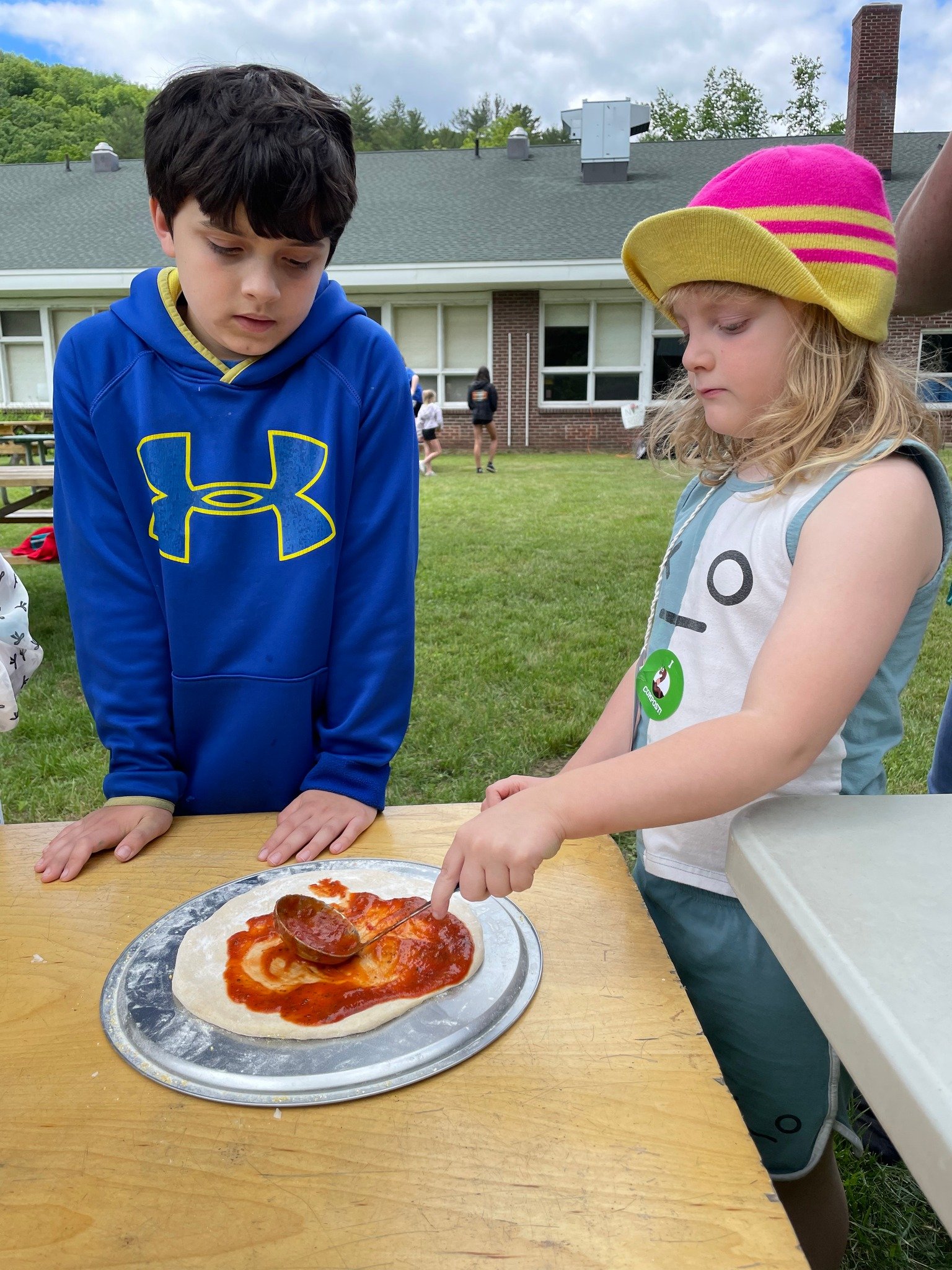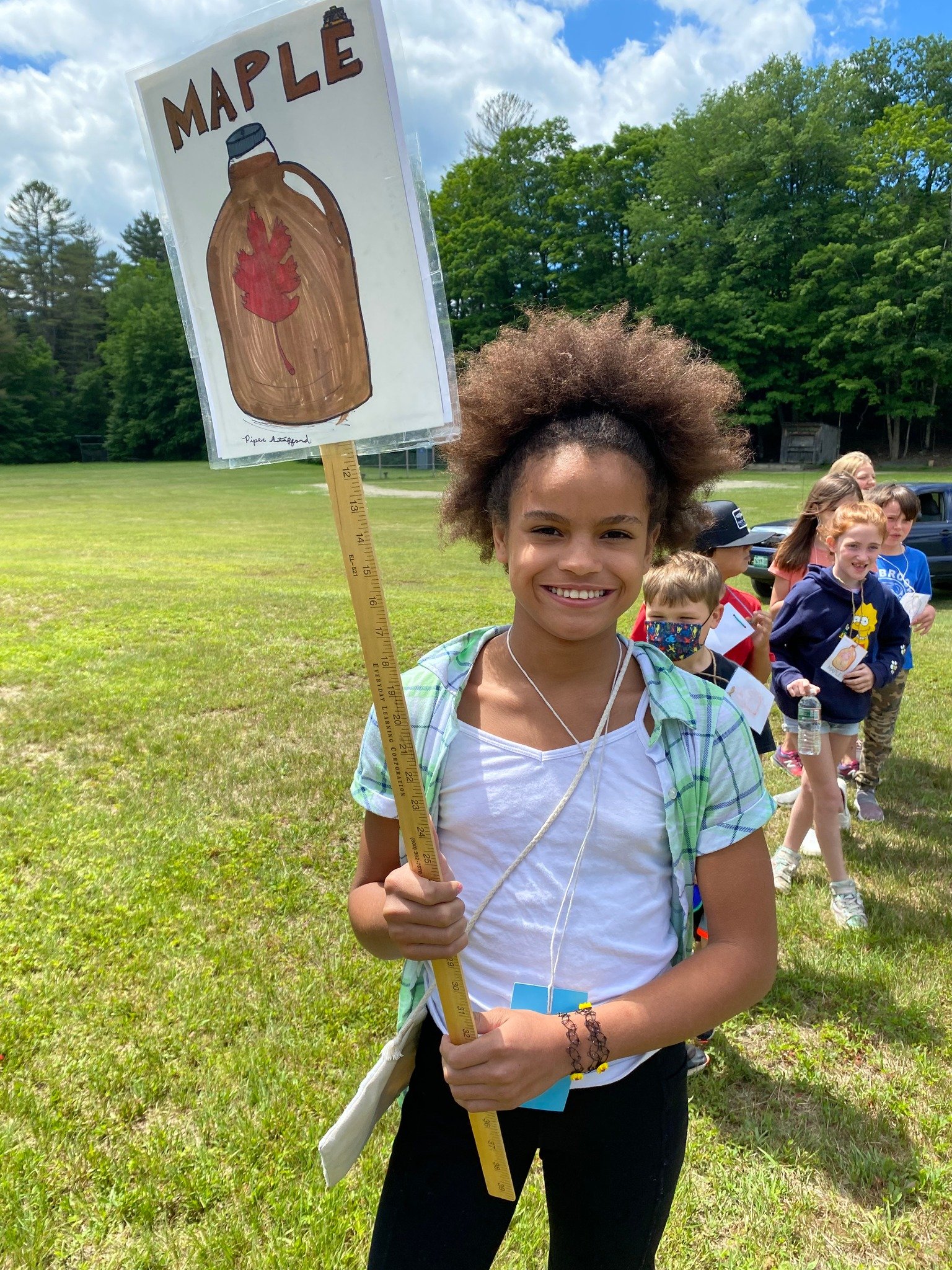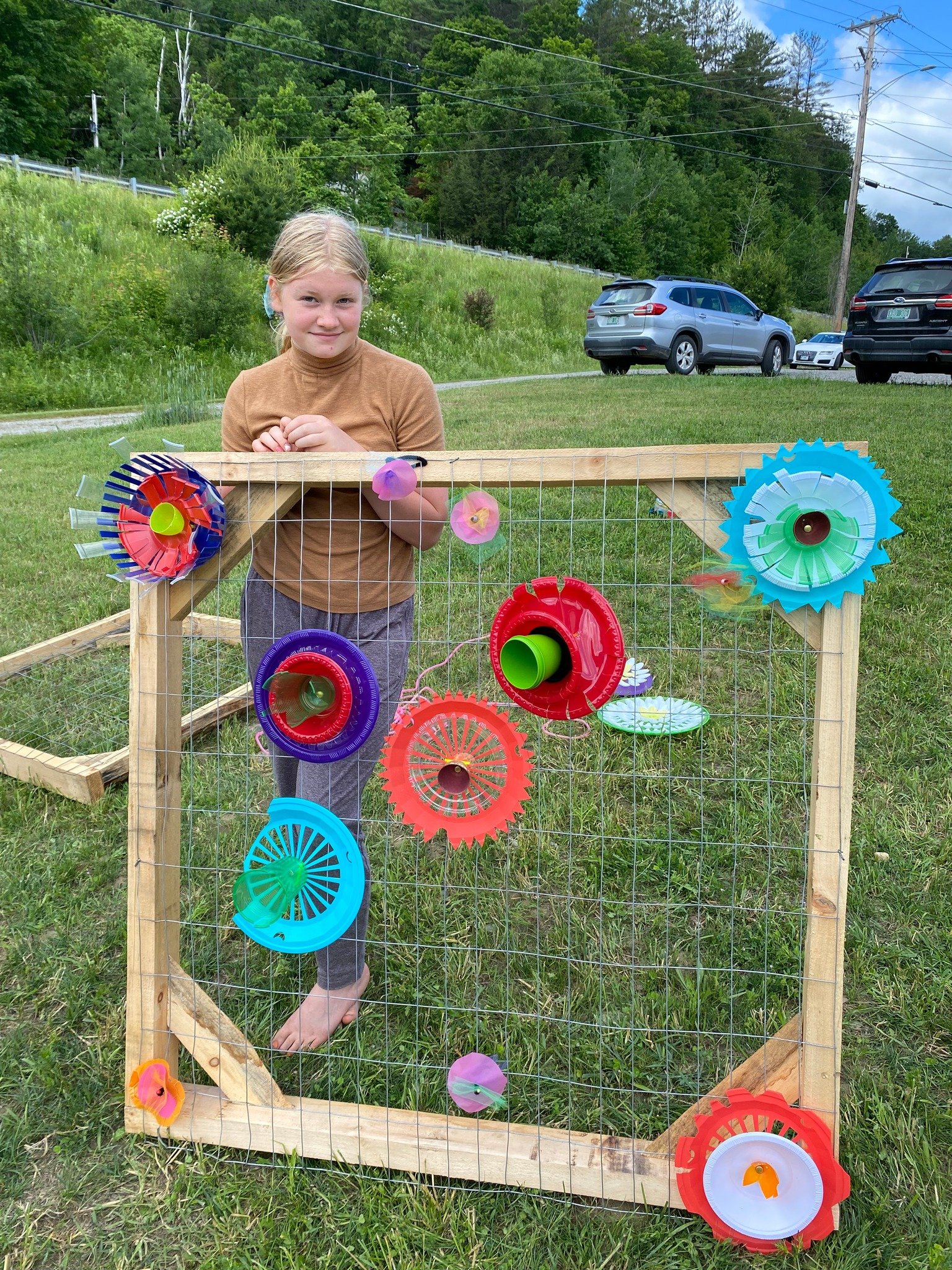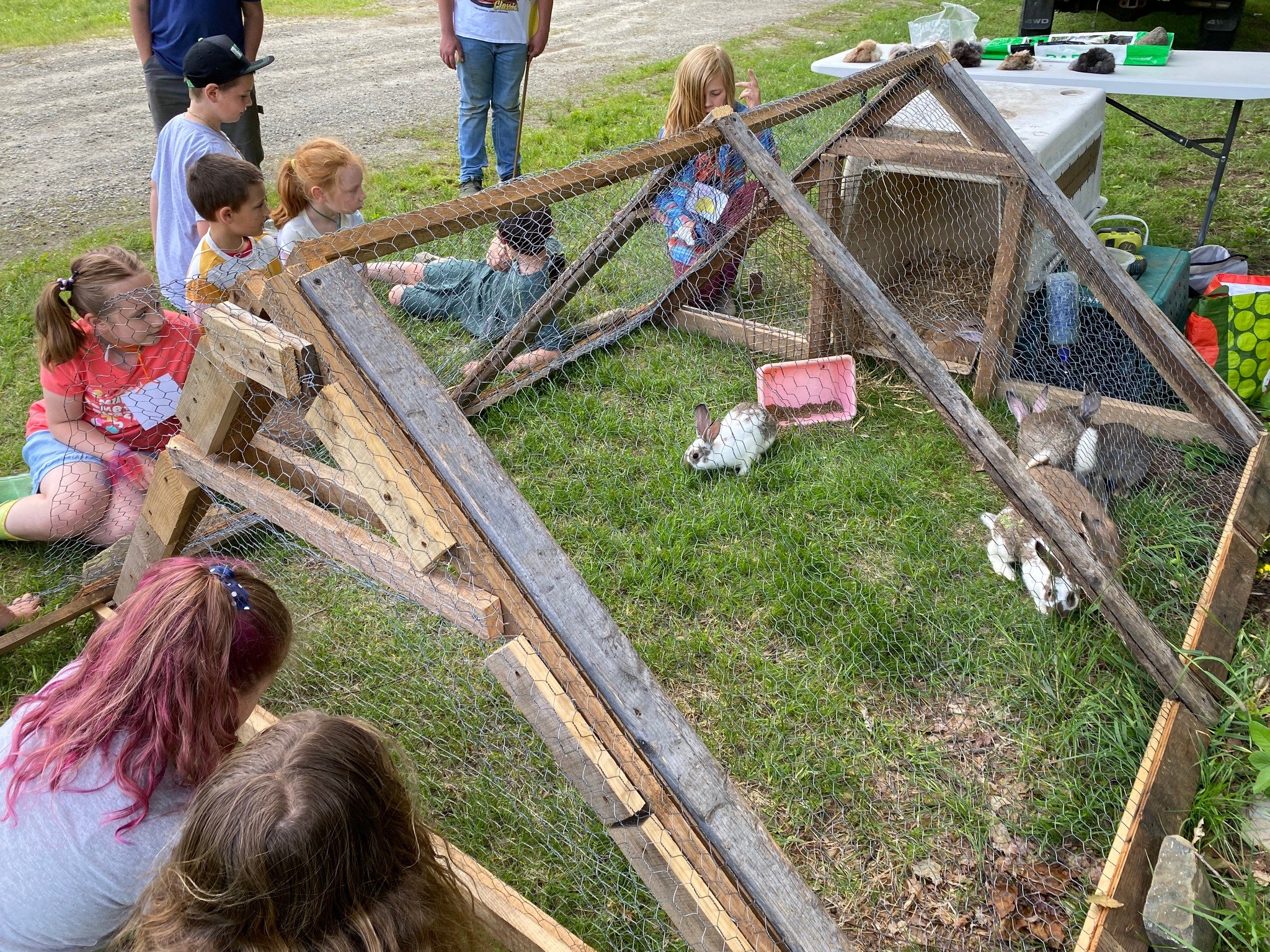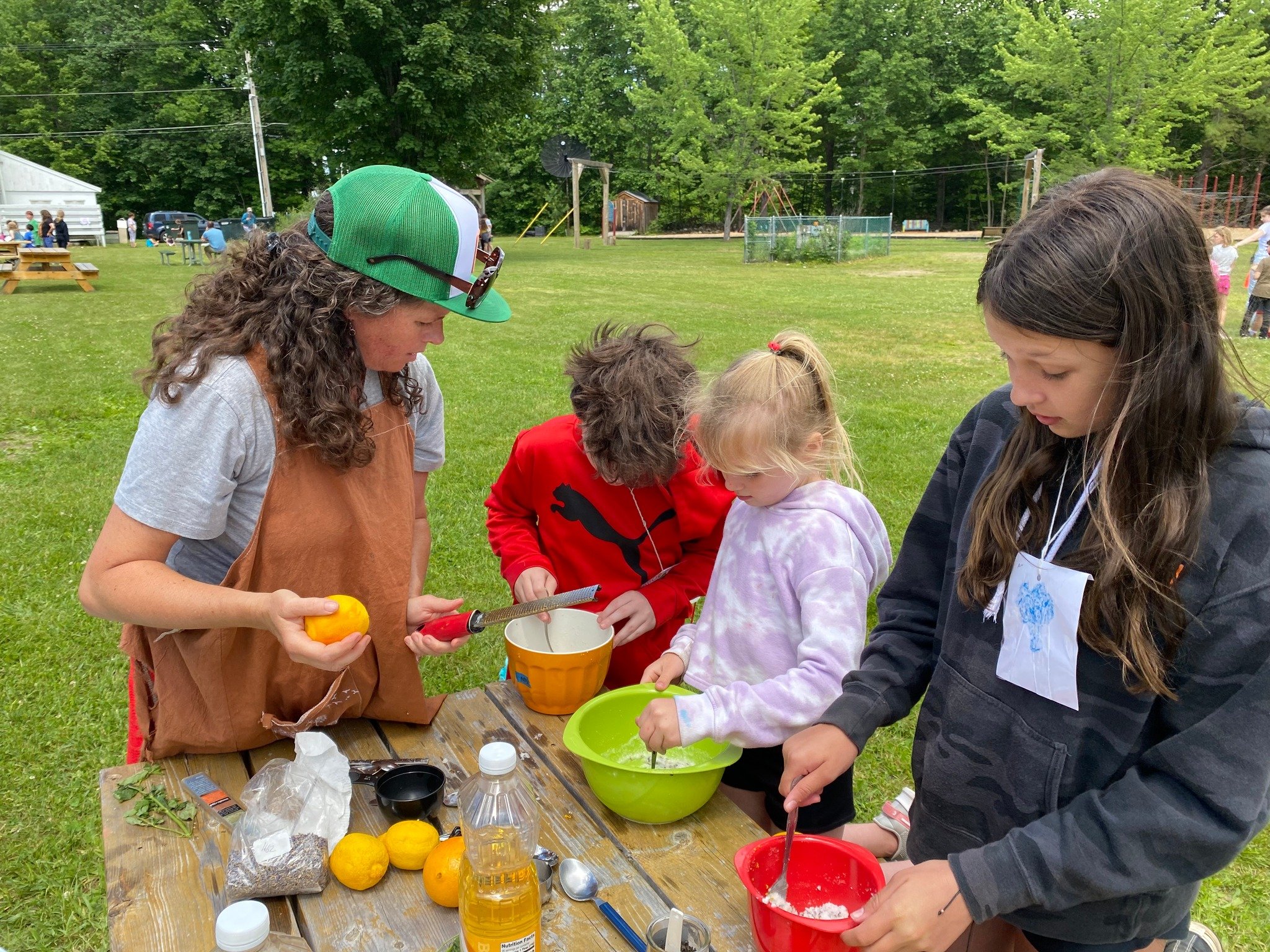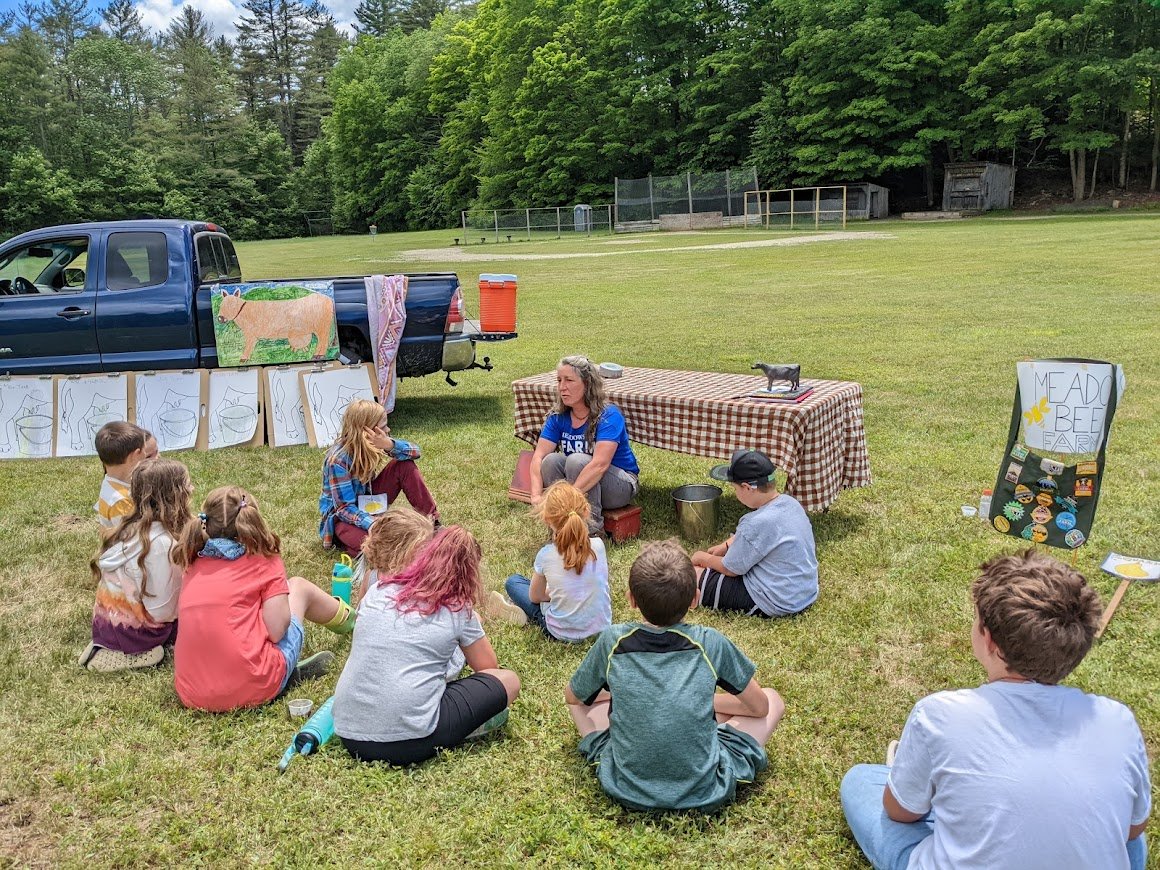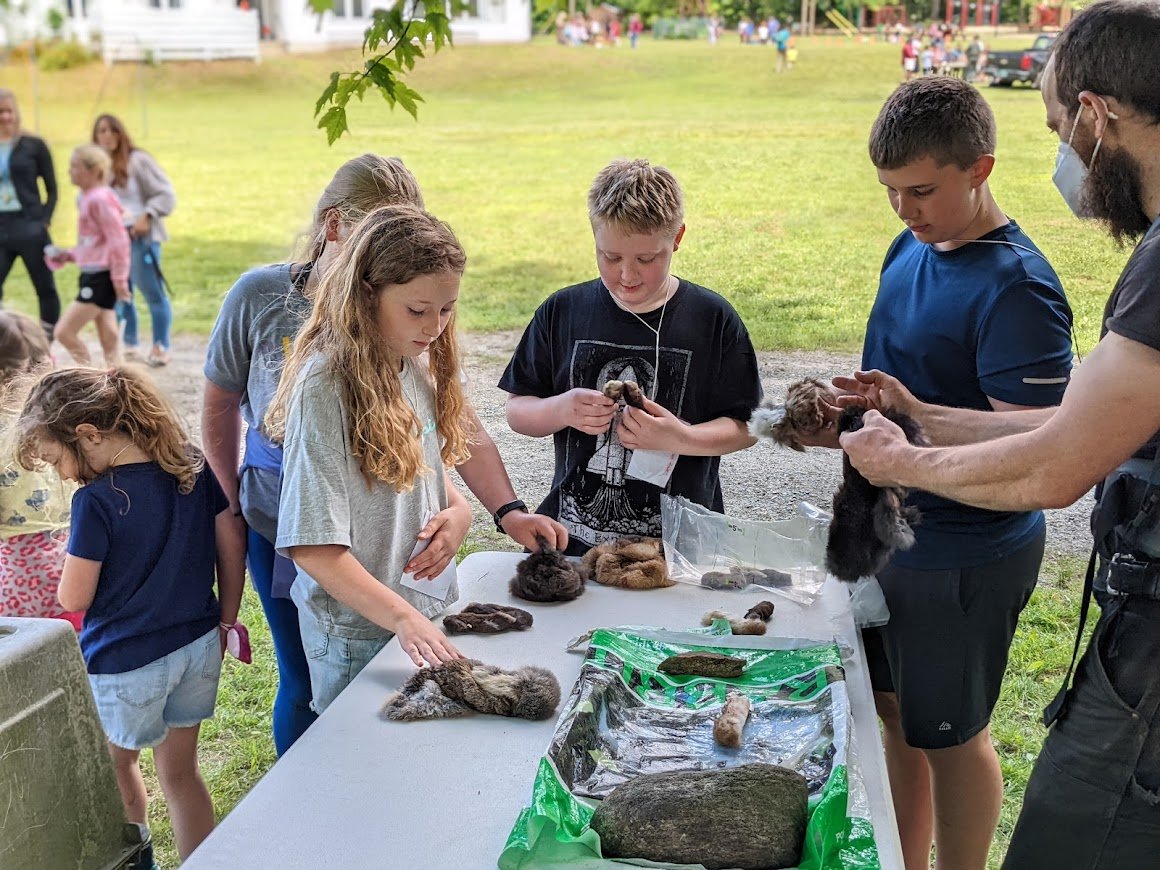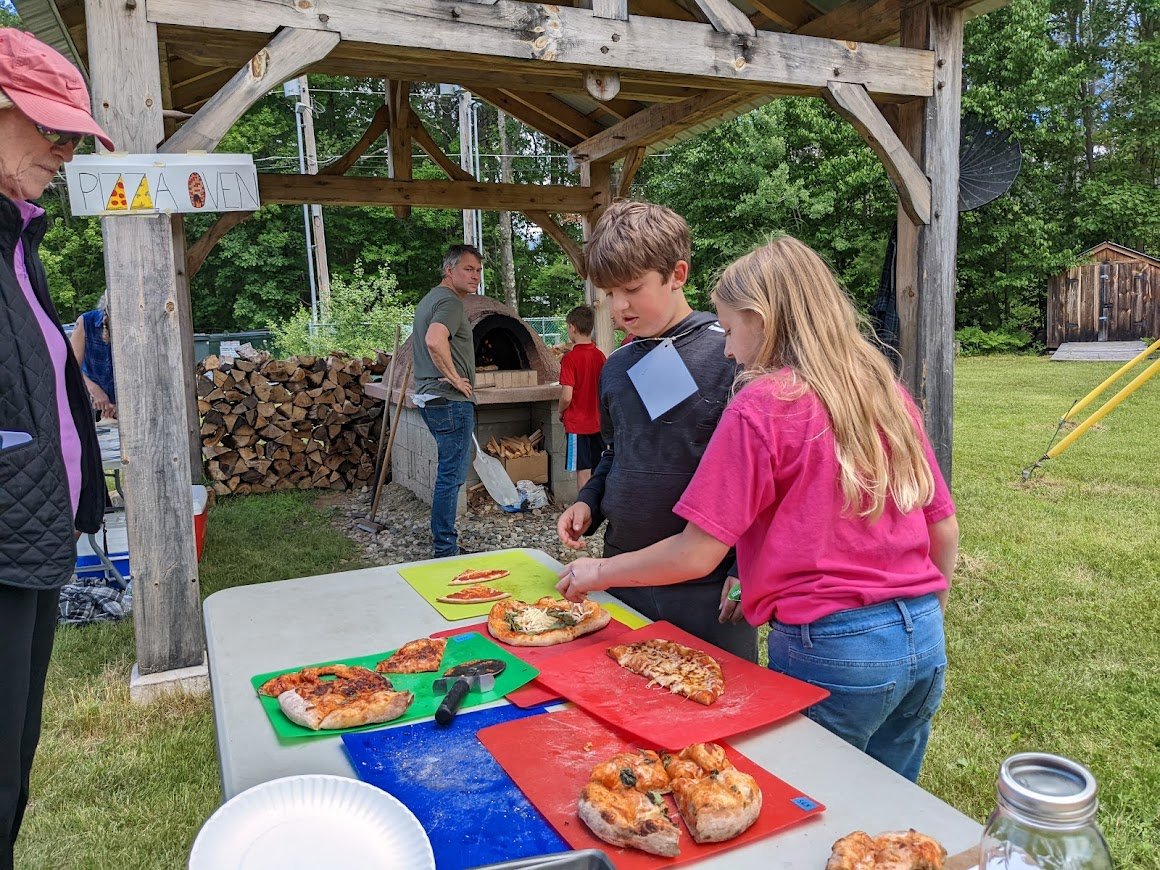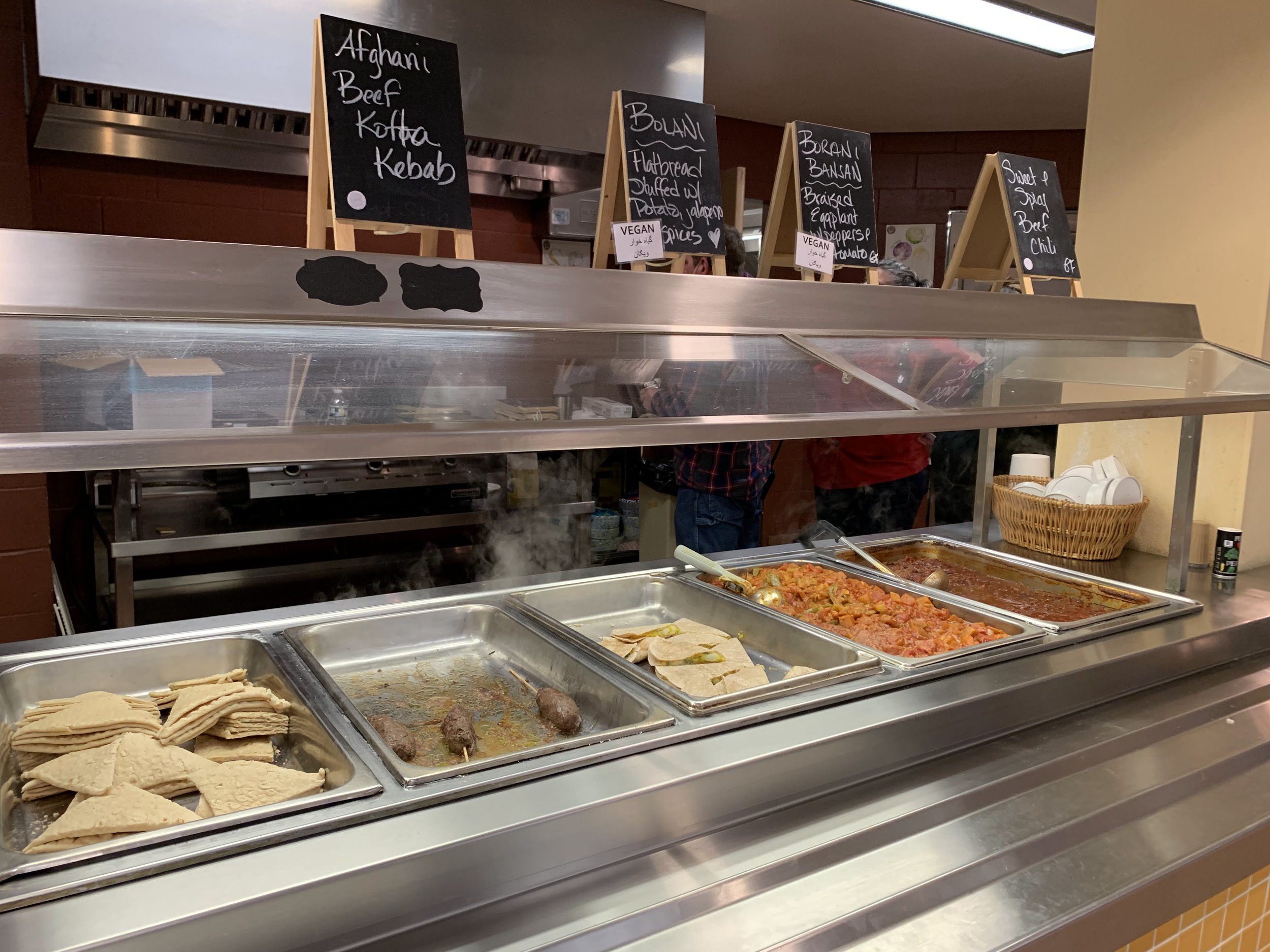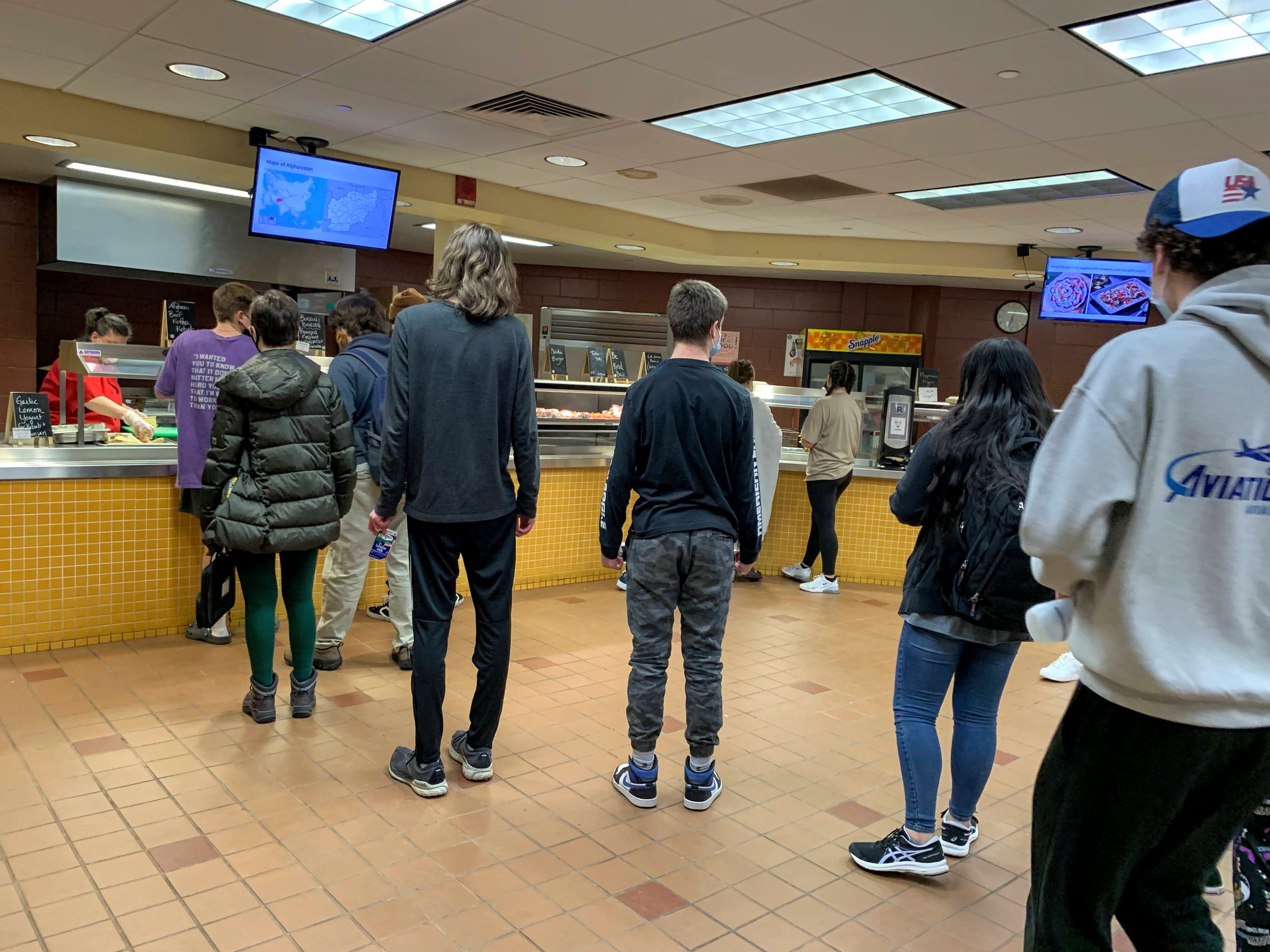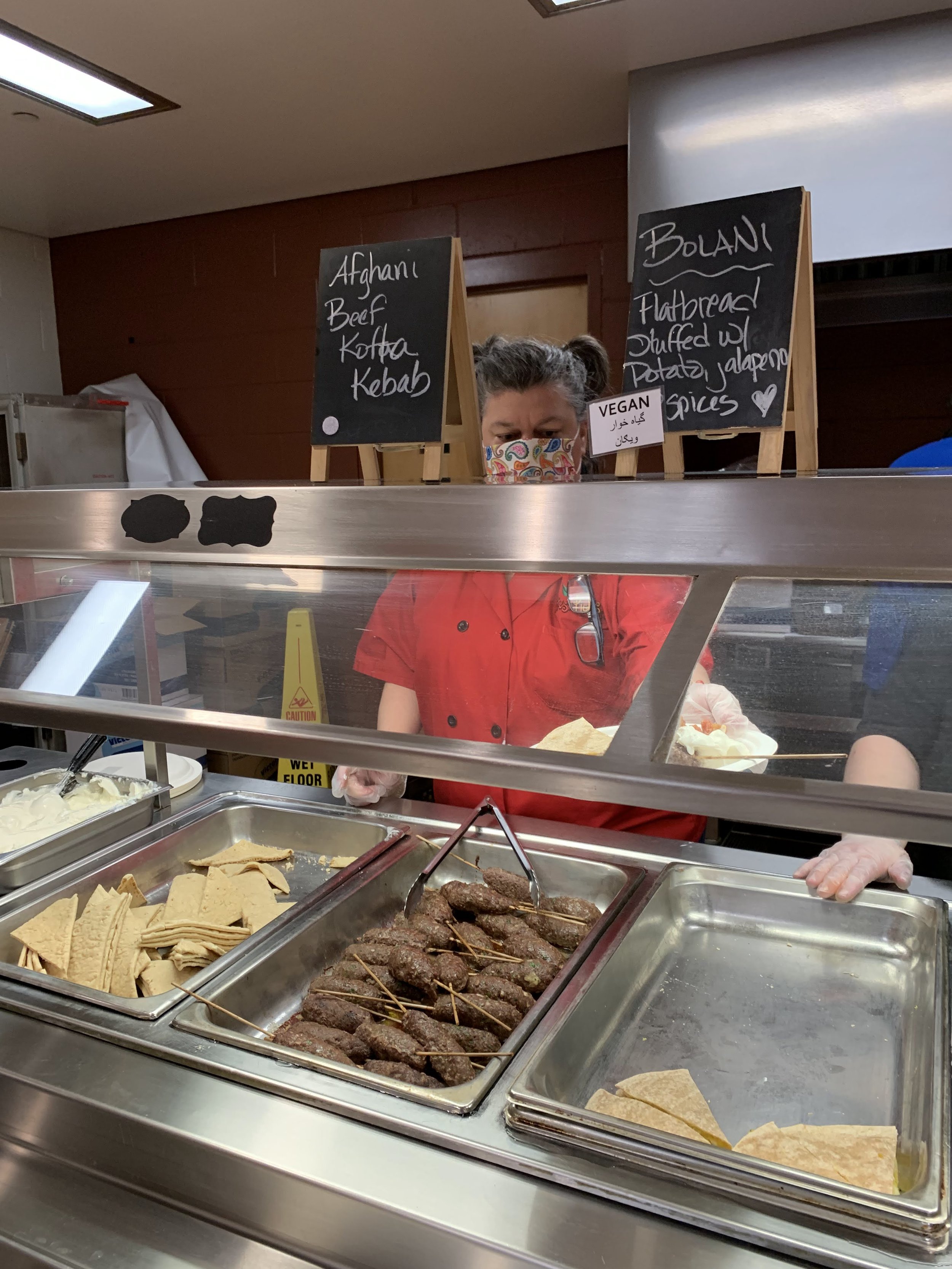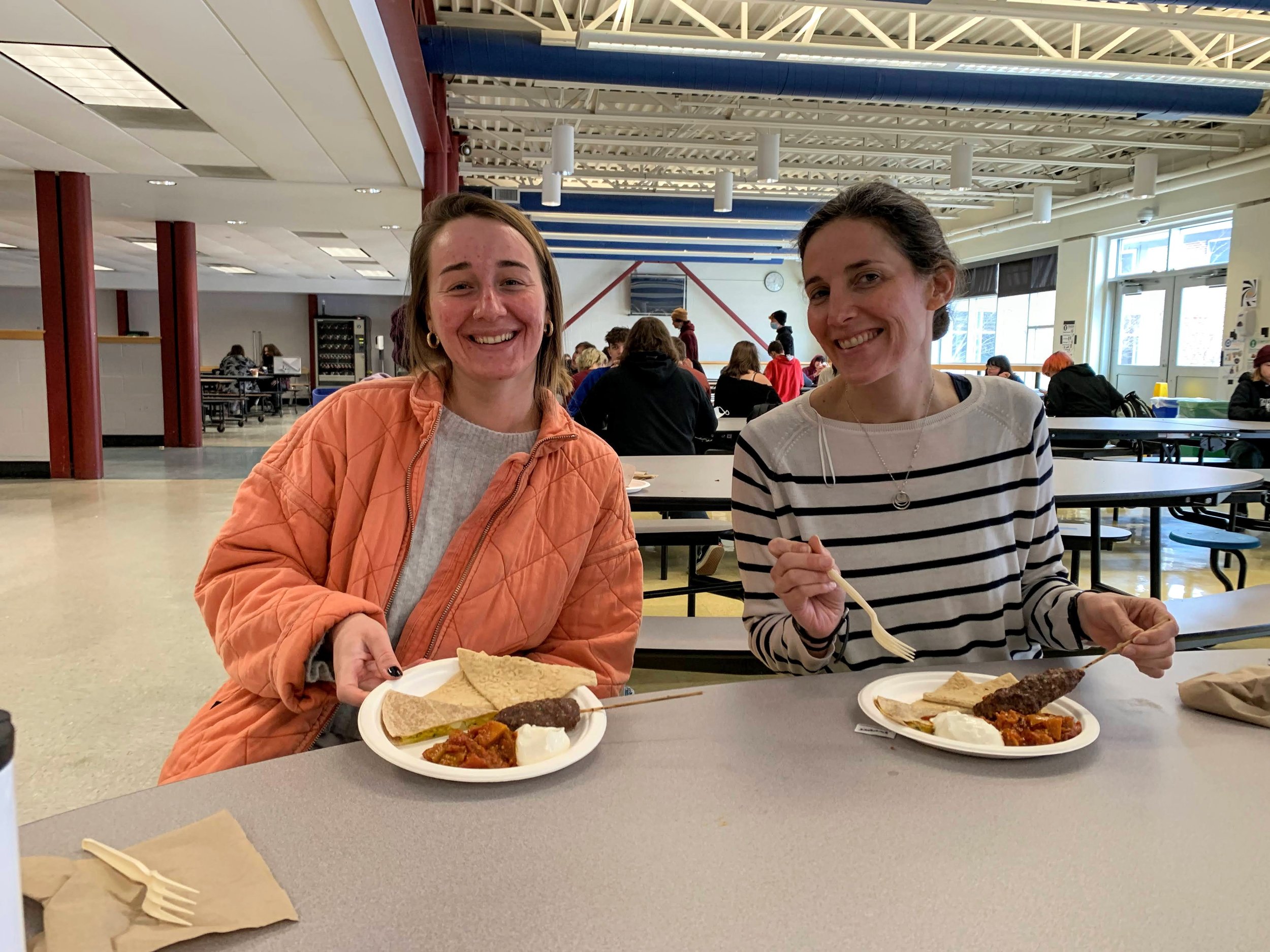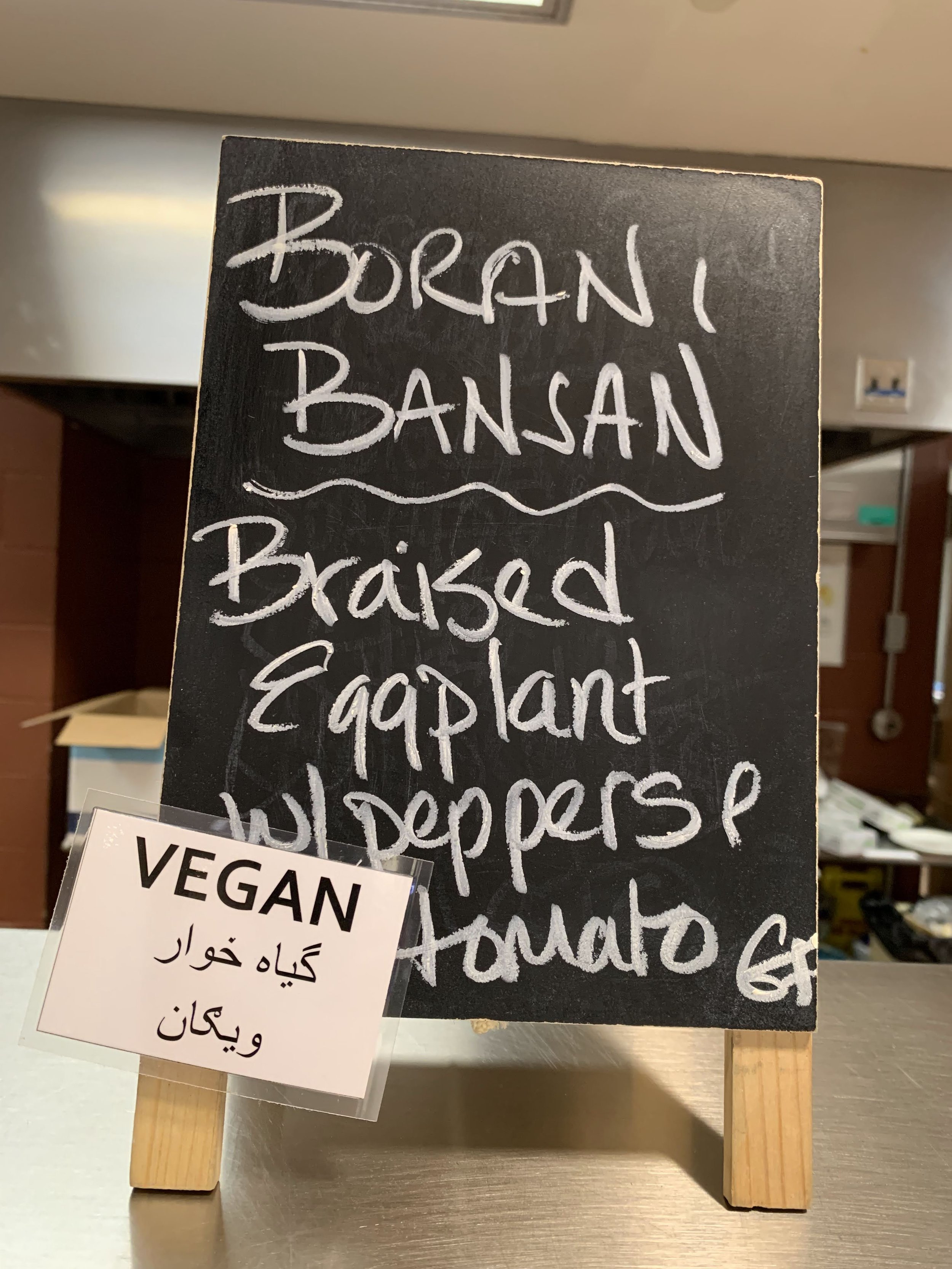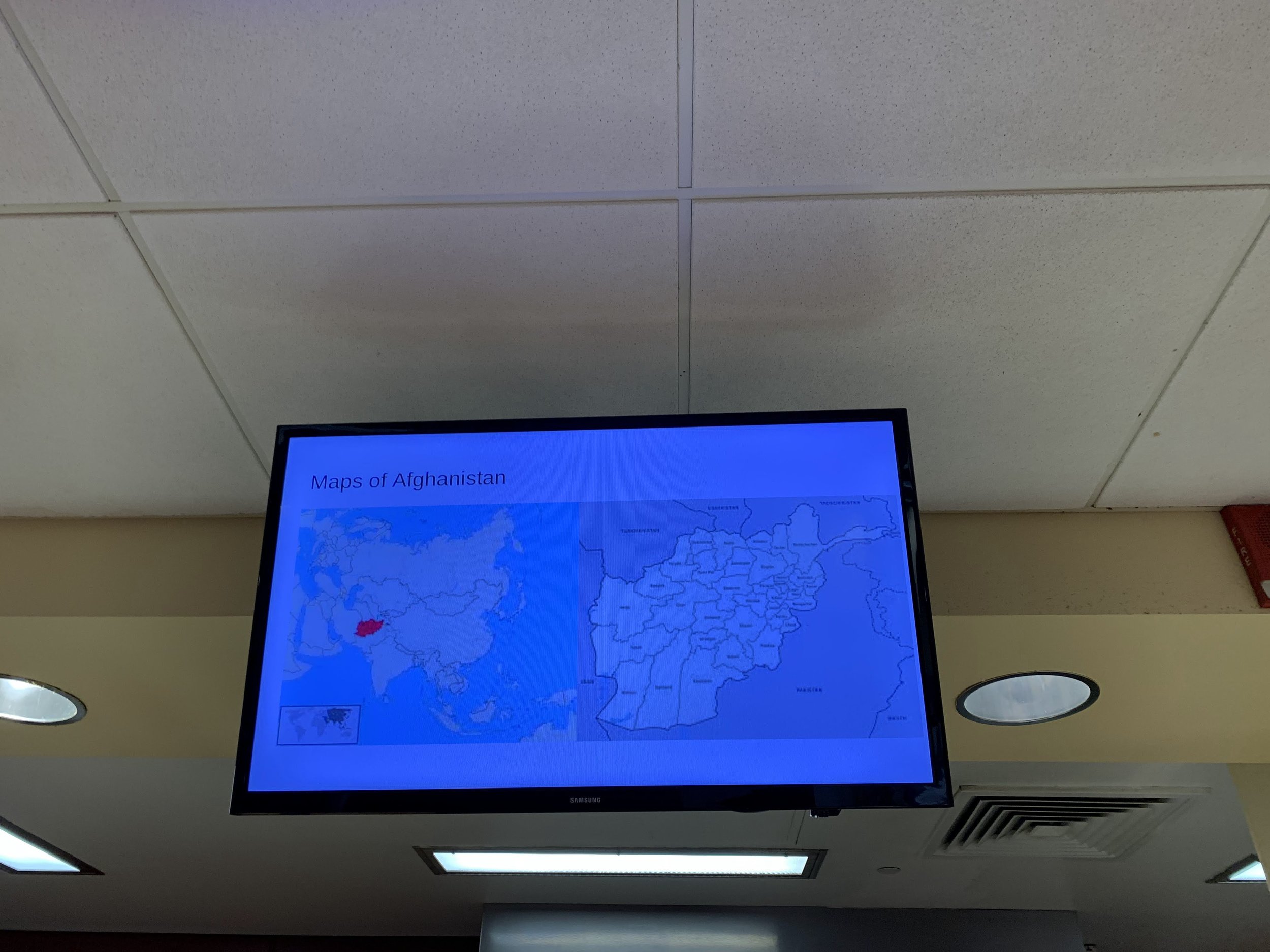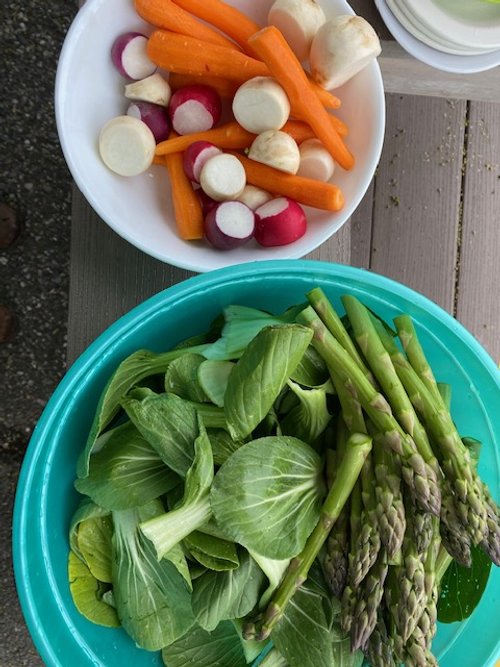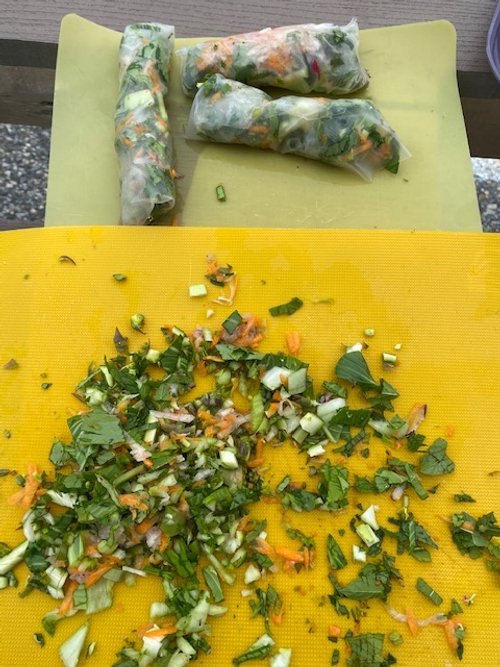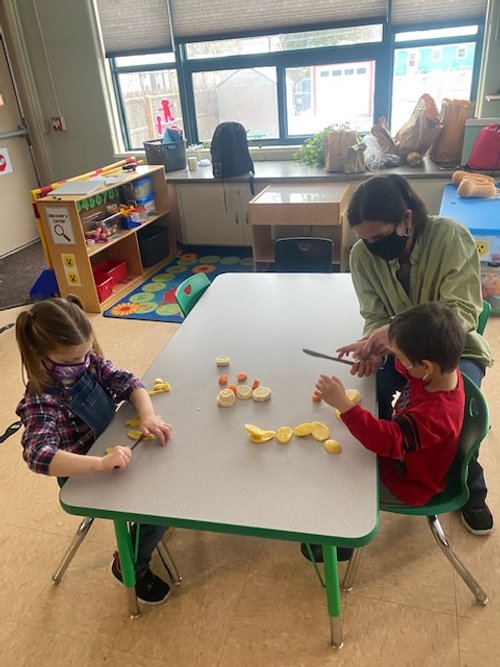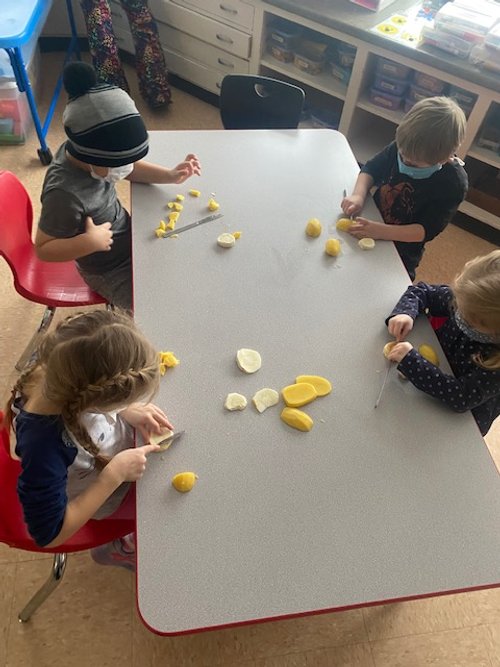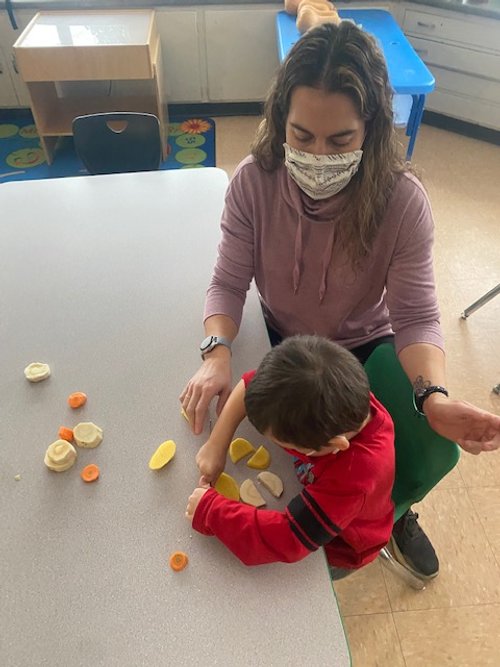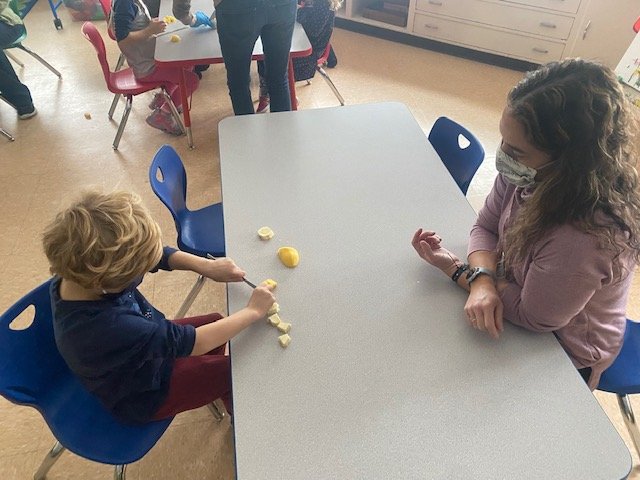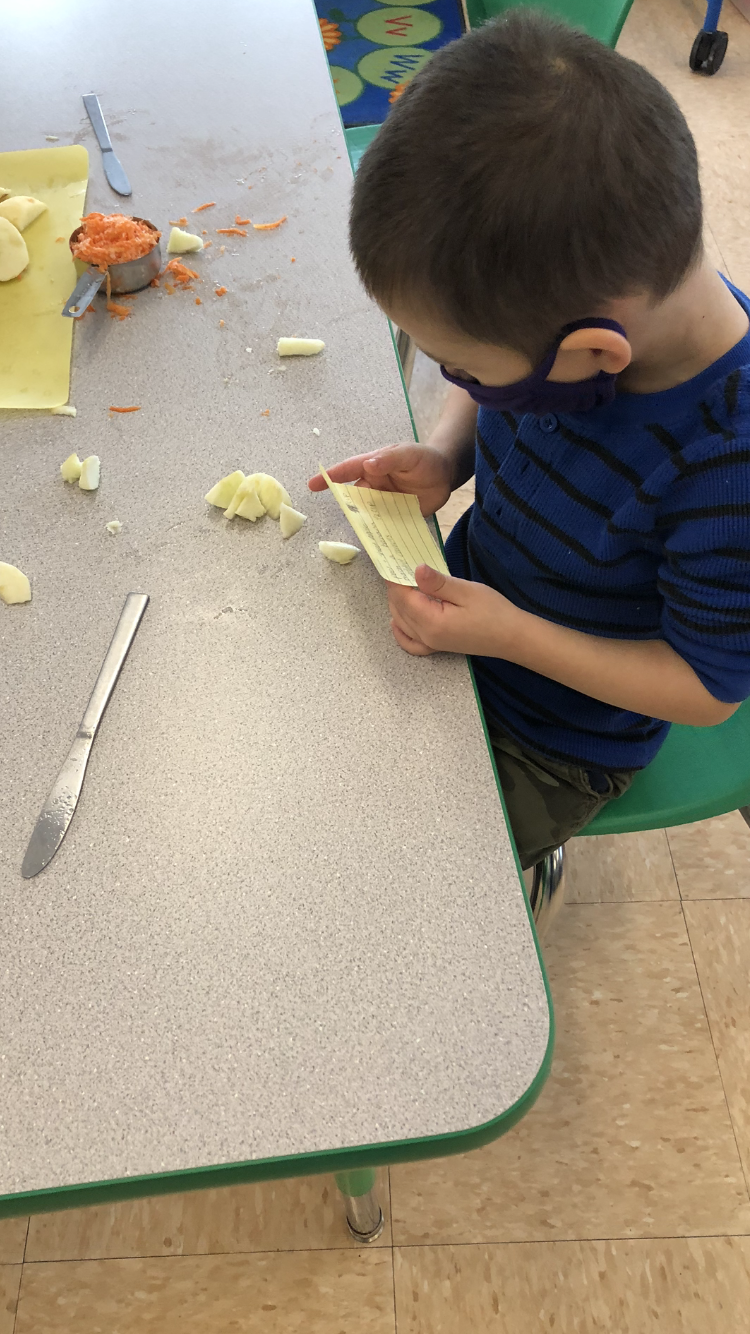After a break forced by the COVID-19 pandemic, NewBrook Elementary School was able to host Farm and Field Day for the first time since 2019. The entire student body took a break from academics to spend an afternoon outdoors learning about food, recycling, and the natural environment.
A multitude of community volunteers came out to run “stations”—where groups of students rotated through. The Windham County Game Warden, Dave Taddei, had a table full of pelts for students to explore and learn about. Giant Journey Farm brought adult rabbits and kits. Meadows Bee Farm had a faux milking station and taught students about June’s Harvest of the Month dairy. Food Connects made strawberry banana “nice cream” (sweetened only with fruit), and students assembled and ate their own pizzas, cooked by a West River Community Project volunteer. Amy Duffy, the school’s Farm to School Coordinator, made herbal salt scrubs with students. And the team from Windham Solid Waste ran a recycling relay! Art teacher Suzanne Paugh engaged students in making a mural for the garden shed out of recycled plastic!
Parents Elizabeth Erickson and Sara Webb, working with NewBrook’s Farm to School Committee, led the efforts to organize the event. Heather Sperling, the school’s wood-fired pizza expert and Farm to School veteran, and Amy Duffy, the school’s FTS Coordinator, were also central to the effort. Thank you so much to all the community members and families who volunteered to help with this event. Principal Scotty Tabachnick said, “it was just beautiful to see everyone outside, enjoying the day as a community again. We’re so thankful to everyone who supports our school.”
It was a wonderful day for all, and NewBrook Elementary School looks forward to hosting more events for students and families.




